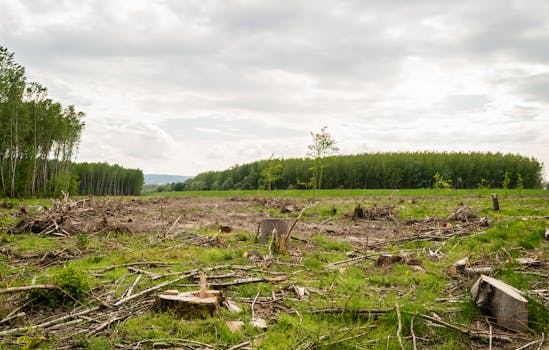
The impact of climate change on global ecosystems is profound and far-reaching. As temperatures rise and weather patterns shift, ecosystems around the world are facing unprecedented challenges. This article delves into the various ways climate change is reshaping our planet’s natural systems, affecting biodiversity, and altering habitats.
Understanding Climate Change

Climate change refers to significant changes in global temperatures and weather patterns over time. While climate change is a natural phenomenon, human activities, particularly the burning of fossil fuels, deforestation, and industrial processes, have accelerated its effects. The increase in greenhouse gases in the atmosphere leads to global warming, which in turn impacts ecosystems.
Effects on Biodiversity

One of the most alarming impacts of climate change is the loss of biodiversity. Many species are unable to adapt quickly enough to the changing climate, leading to shifts in population dynamics and, in some cases, extinction. For instance, warmer temperatures can disrupt breeding patterns, migration routes, and food availability for various species.
Coral reefs, which are among the most diverse ecosystems on the planet, are particularly vulnerable. Increased ocean temperatures lead to coral bleaching, a phenomenon where corals lose their vibrant colors and the symbiotic algae they rely on for food. This not only affects marine life but also impacts coastal communities that depend on these ecosystems for their livelihoods.
Disruption of Natural Habitats

Climate change is altering natural habitats at an alarming rate. Forests, wetlands, and grasslands are experiencing changes in their structure and function. For example, increased temperatures and altered precipitation patterns can lead to a shift in vegetation types, threatening species that rely on specific habitats.
Moreover, rising sea levels threaten coastal ecosystems, including mangroves and salt marshes, which provide essential services such as storm protection and carbon storage. The loss of these habitats contributes to increased flooding and erosion, further exacerbating the impact of climate change.
Impact on Food Security

The changes in ecosystems due to climate change also have significant implications for food security. Agriculture is heavily dependent on stable climate conditions. Altered rainfall patterns and extreme weather events can lead to crop failures, affecting food supply and prices. Additionally, the loss of pollinators, such as bees, due to habitat loss and changing climates poses a severe risk to global food production.
Conclusion

The impact of climate change on global ecosystems is a complex issue that requires immediate attention. As we continue to witness changes in biodiversity, habitat disruptions, and challenges to food security, it is crucial for individuals, communities, and governments to take action. By adopting sustainable practices and reducing greenhouse gas emissions, we can help mitigate the effects of climate change and protect our planet’s precious ecosystems for future generations.



